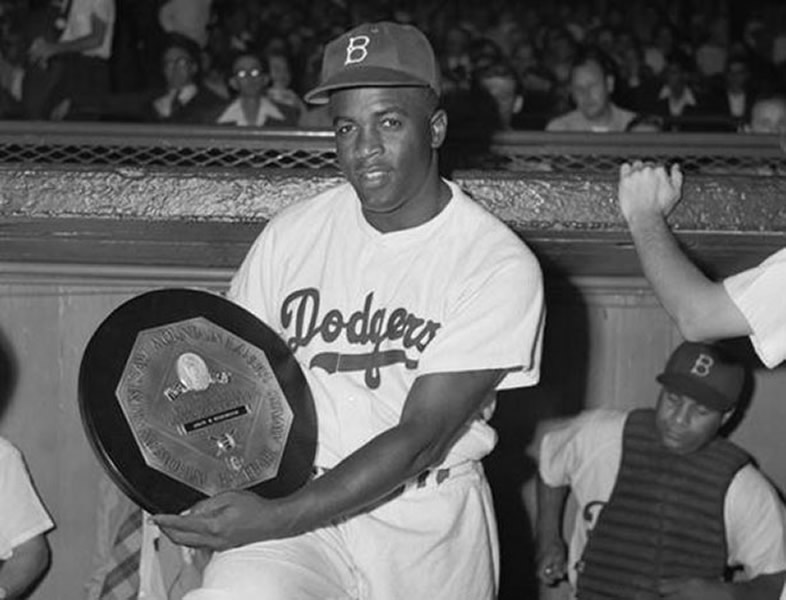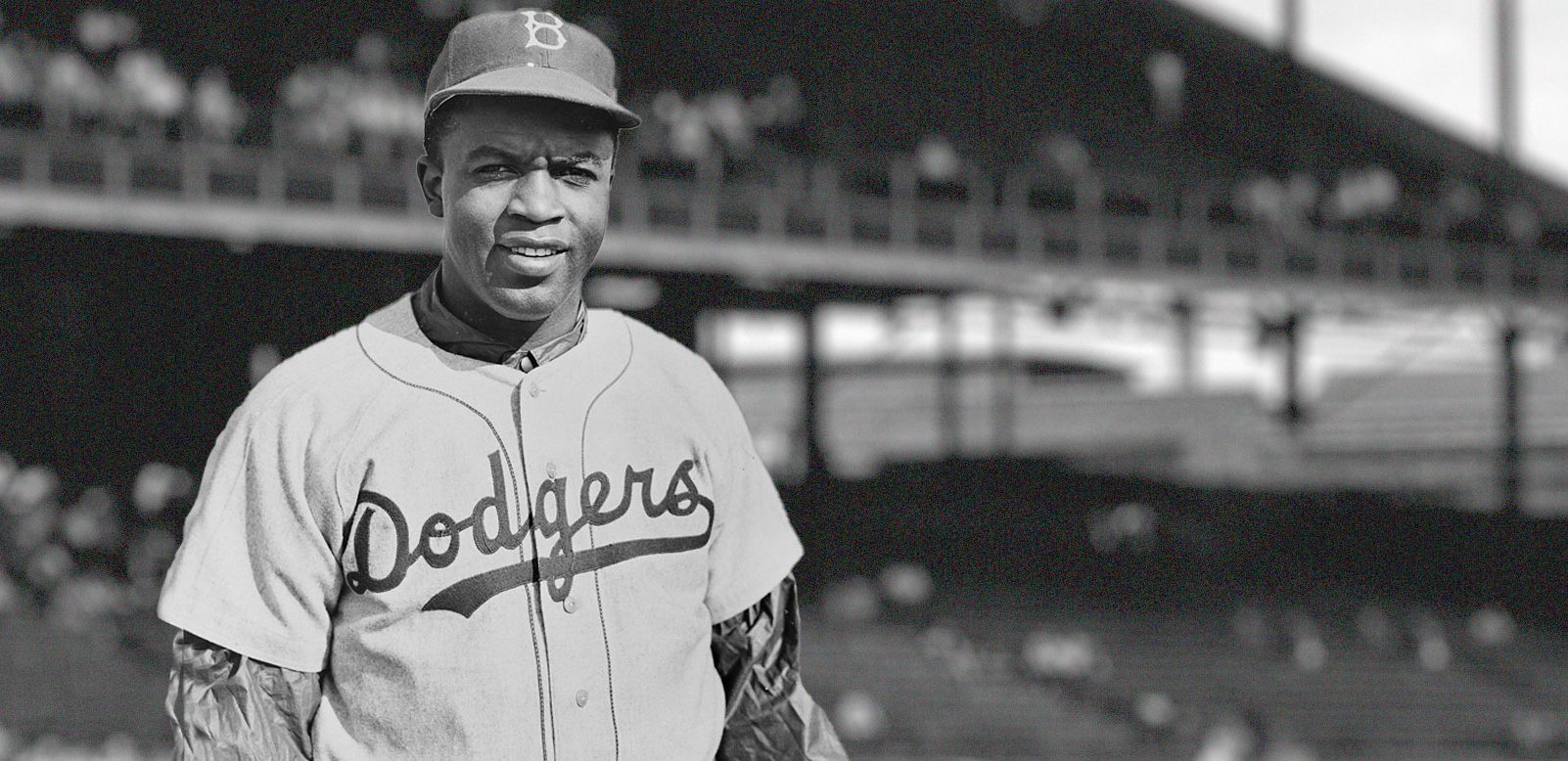Jackie Robinson Jr.: A Legacy Of Courage And Resilience
Jackie Robinson Jr. is a name that carries the weight of a legacy that transcends baseball and sports. As the son of the legendary Jackie Robinson, the first African American to break the color barrier in Major League Baseball, Jackie Jr. walked in the shadow of greatness while forging his own path. His life and contributions reflect not only his father's influence but also his own unique journey through military service, addiction recovery, and advocacy for social justice.
Through his experiences, Jackie Robinson Jr. became a symbol of resilience and determination, embodying the values of perseverance and integrity. His story is one of triumph over adversity and serves as an inspiration to countless individuals who face challenges in their own lives.
This article delves into the life of Jackie Robinson Jr., exploring his achievements, struggles, and contributions to society. By understanding his journey, we can gain insight into the lasting impact of a family legacy and the power of personal transformation.
Read also:Reliable Rooter Plumbing Your Ultimate Guide To Expert Plumbing Services
Table of Contents
- Biography of Jackie Robinson Jr.
- Early Life and Family Background
- Military Service and Leadership
- Facing Addiction: A Personal Battle
- Path to Recovery and Advocacy
- Legacy and Influence
- Social Impact and Contributions
- Key Achievements and Recognition
- Historical Context of His Era
- Conclusion: Continuing the Legacy
Biography of Jackie Robinson Jr.
Personal Data
Jackie Robinson Jr. was born on January 14, 1951, in New York City. As the eldest son of Jackie and Rachel Robinson, he grew up in a household that emphasized education, integrity, and community service. Below is a summary of his personal data:
| Full Name | Jack Roosevelt Robinson Jr. |
|---|---|
| Birthdate | January 14, 1951 |
| Birthplace | New York City, USA |
| Parents | Jackie Robinson (father) and Rachel Robinson (mother) |
| Occupation | Military Officer, Social Advocate |
| Legacy | Symbol of resilience and social justice |
Jackie Jr.'s life was marked by significant personal and professional milestones. Despite the challenges he faced, he remained committed to making a positive impact on society.
Early Life and Family Background
Growing up in the shadow of a legendary father, Jackie Jr. had access to opportunities that many others did not. His parents instilled in him the importance of education and community involvement. Attending integrated schools, Jackie Jr. learned to navigate a world that was still grappling with racial inequality.
His father's groundbreaking career in baseball provided a platform for discussions about civil rights and social justice within the family. These early experiences shaped Jackie Jr.'s worldview and laid the foundation for his future endeavors.
Military Service and Leadership
Commitment to Duty
In 1969, Jackie Robinson Jr. joined the U.S. Army, following in the footsteps of his father, who had also served in the military during World War II. His decision to enlist reflected his commitment to duty and service to his country. During his time in the Army, Jackie Jr. demonstrated leadership qualities and earned respect from his peers.
His military service also exposed him to the realities of war and its impact on individuals and communities. This experience deepened his understanding of the challenges faced by veterans and fueled his later advocacy work.
Read also:Hindi Dubbed Movies A Gateway To Indian Cinema
Facing Addiction: A Personal Battle
Despite his strong family background and military training, Jackie Jr. struggled with drug addiction during his early years. The pressures of living up to his father's legacy and the trauma of his military experiences contributed to his battle with substance abuse.
His story of addiction serves as a reminder that even those with strong support systems can face personal challenges. However, Jackie Jr.'s determination to overcome his struggles became a defining moment in his life.
Path to Recovery and Advocacy
Turning Point
In the early 1970s, Jackie Robinson Jr. entered a rehabilitation program, marking a turning point in his life. His successful recovery inspired him to dedicate his life to helping others facing similar challenges. He became actively involved in advocating for addiction treatment and mental health awareness.
- Founded the Drug Abuse Rehabilitation Program (DARP) in Connecticut.
- Worked with local communities to provide support for individuals in recovery.
- Spoke publicly about his experiences to reduce stigma around addiction.
Through his advocacy work, Jackie Jr. demonstrated the power of personal transformation and its potential to influence societal change.
Legacy and Influence
Jackie Robinson Jr.'s legacy extends beyond his personal achievements. His commitment to social justice and community service reflects the values instilled in him by his parents. By addressing issues such as addiction, mental health, and racial equality, Jackie Jr. expanded the scope of his family's impact on society.
His untimely death in a car accident in 1971 cut short a promising career, but his contributions continue to inspire those who strive to make a difference in their communities.
Social Impact and Contributions
Advancing Social Justice
Jackie Jr.'s involvement in social justice initiatives aligned with the work of his parents, who were prominent civil rights activists. Through his advocacy for addiction treatment and mental health awareness, he addressed issues that disproportionately affected marginalized communities.
His efforts contributed to the broader movement for equality and justice, emphasizing the importance of addressing systemic barriers to opportunity and well-being.
Key Achievements and Recognition
Throughout his life, Jackie Robinson Jr. achieved several milestones that highlighted his commitment to service and advocacy:
- Graduated from Morgan State University, where he studied sociology.
- Served honorably in the U.S. Army, earning recognition for his leadership.
- Established the DARP program, which provided critical support for individuals in recovery.
- Spoke at numerous events, raising awareness about addiction and mental health issues.
His contributions were acknowledged by various organizations and individuals who recognized the impact of his work.
Historical Context of His Era
Jackie Robinson Jr.'s life unfolded during a period of significant social and political change in the United States. The civil rights movement, anti-war protests, and the fight against systemic racism shaped the backdrop of his experiences. Understanding this historical context provides insight into the challenges he faced and the opportunities he embraced.
As a member of a pioneering family, Jackie Jr. navigated a world that was rapidly evolving, using his platform to address pressing issues of his time.
Conclusion: Continuing the Legacy
Jackie Robinson Jr.'s life and work exemplify the power of resilience and the importance of addressing societal challenges. By overcoming personal struggles and dedicating himself to advocacy, he left an indelible mark on the world. His legacy continues to inspire individuals and communities to strive for justice, equality, and positive change.
We invite you to share your thoughts on this article and explore other stories of courage and transformation on our website. Together, we can honor the legacy of Jackie Robinson Jr. and those who follow in his footsteps.

